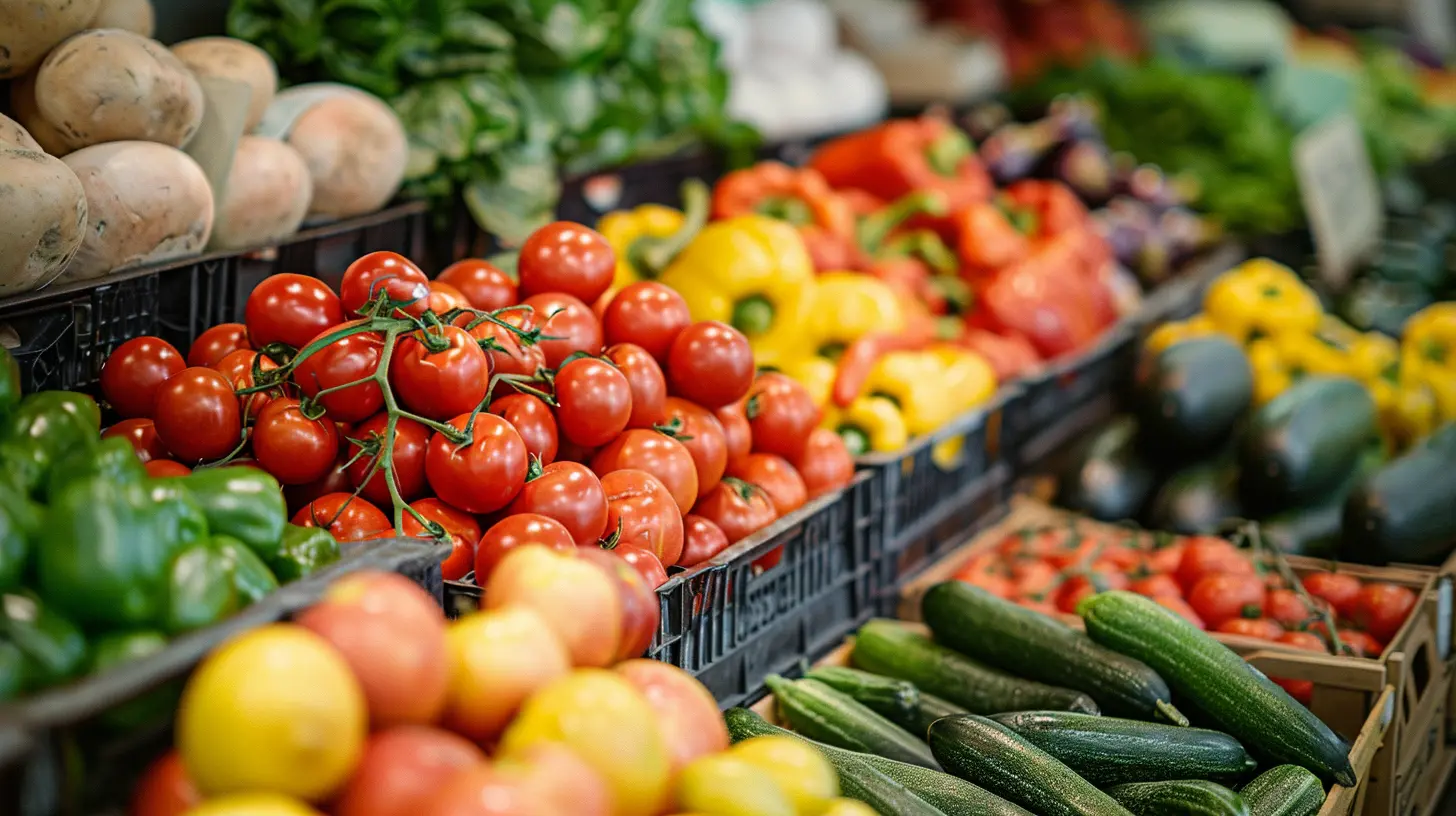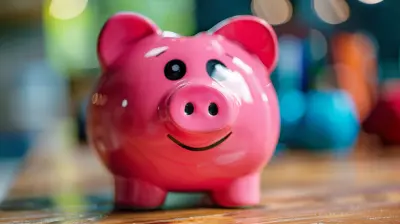Frugality as a Lifestyle Choice: Not Just for Tough Times
25 June 2025
In a world where consumerism is king, frugality often gets a bad rap. Many people see it as a last resort—something you turn to only when money is tight. But what if I told you that frugality isn’t just for tough times? Instead, it can be a smart, fulfilling lifestyle choice that leads to financial freedom, less stress, and a greater appreciation for the things that truly matter.
Let’s dive into why frugality shouldn't just be a backup plan but a way of life. 
What Is Frugality, Really?
Before we go any further, let’s clear up a common misconception. Being frugal doesn’t mean being cheap. Cheap means cutting corners at the expense of quality. Frugality, on the other hand, is about being intentional with your money—spending wisely, prioritizing needs over wants, and making conscious decisions to maximize value.Think of it like grocery shopping: A cheap person might buy the lowest-priced food, even if it’s unhealthy or low quality. A frugal person, however, would look for nutritious, affordable options, maybe even cooking from scratch to save money and eat better. 
Why Frugality Is a Smart Lifestyle Choice
1. Financial Freedom Starts Here
One of the biggest advantages of living frugally is the financial independence it brings. When you’re mindful of your spending, you break free from paycheck-to-paycheck living. Saving money consistently—even in small amounts—creates a safety net for unexpected expenses, investments, or even early retirement.Imagine being able to say "yes" to opportunities, not because you have to, but because you’re financially secure. That’s the power of frugality.
2. Less Financial Stress, More Peace of Mind
Few things weigh on people’s minds more than money troubles. Debt, unexpected bills, and financial uncertainty can keep you up at night. Adopting a frugal mindset reduces financial stress because you're in control.When you cut unnecessary expenses and live below your means, you create breathing room in your budget. That way, when life throws a curveball—like a sudden medical bill or car repair—you’re prepared rather than panicked.
3. A Minimalist, Clutter-Free Life
Frugality and minimalism go hand in hand. By choosing to spend only on what truly adds value to your life, you naturally declutter your space and mind.Think about it: How many things in your home do you actually use? How many impulse buys sit forgotten in a drawer? Embracing frugality helps you focus on quality over quantity, leading to a simpler, more intentional lifestyle.
4. Greater Appreciation for What You Have
When you stop constantly chasing the next "big thing," you start appreciating the things you already own. Rather than upgrading your phone every year, you maximize the use of your current device. Instead of dining out every weekend, you find joy in home-cooked meals with loved ones.Frugality teaches us to be grateful, and gratitude, in turn, leads to greater happiness.
5. Environmental Benefits
Being frugal isn’t just good for your wallet—it’s great for the planet too. When you consume less, waste less, and repurpose more, you're reducing your environmental footprint.Think about fast fashion, for example. Constantly buying cheap, low-quality clothes leads to tons of textile waste. A frugal person invests in well-made, timeless pieces that last years, reducing overall consumption and waste. 
Practical Ways to Embrace Frugality Daily
Now that we know why frugality is a smart choice, let’s talk about how to implement it in daily life.1. Track Your Spending
The first step to frugality? Understanding where your money goes. Use budgeting apps, spreadsheets, or even a simple notebook to track every expense. Once you see where your money flows, you’ll find areas to cut back without sacrificing your lifestyle.2. Cut Unnecessary Subscriptions
Streaming services, gym memberships, magazines—how many of them do you actually use? Do an audit of your subscriptions and cancel the ones that provide little value.3. Cook More at Home
Eating out is one of the quickest ways to drain your wallet. Learning to cook simple, nutritious meals not only saves money but also improves your health. Challenge yourself to meal prep or try "pantry cooking" where you make meals with what’s already in your kitchen.4. Buy Second-Hand
From clothes to furniture, second-hand shopping can save you a fortune. Thrift stores, online marketplaces, and swap events are gold mines for high-quality items at a fraction of the price.5. Embrace DIY Mentality
Need home repairs? Want to update your wardrobe? Instead of immediately hiring someone or buying new, see if you can do it yourself. You’d be surprised how many skills you can learn online that save you big bucks.6. Prioritize Needs Over Wants
One of the simplest but most effective frugal habits is asking yourself: "Do I need this, or do I just want it?" Learning to differentiate the two helps curb impulse spending and keeps your budget in check.
Breaking the "Only for Tough Times" Mentality
Many people associate frugality with hardship, but let’s flip that mentality. Frugality isn’t about deprivation—it’s about empowerment. When you choose frugality as a lifestyle, you're making decisions based on long-term benefits rather than short-term pleasures.Instead of focusing on what you're "giving up," think about what you’re gaining:
- More financial security
- Less stress and anxiety
- A more meaningful, intentional life
Rich or poor, young or old—everyone can benefit from a frugal mindset. Even if you’re earning a high income, adopting frugality ensures that wealth lasts and helps you build generational security.
Final Thoughts
Frugality isn’t just for tight budgets or economic downturns. It’s a conscious way of living that leads to financial freedom, less stress, and a greater appreciation for what truly matters. By making mindful decisions and cutting unnecessary expenses, you gain more control over your money and, ultimately, your life.So, why wait for tough times to start embracing frugality? Make it a lifestyle choice today and reap the benefits for years to come.
all images in this post were generated using AI tools
Category:
Frugal LivingAuthor:

Yasmin McGee
Discussion
rate this article
2 comments
Virginia Bennett
Frugality whispers secrets of wealth; embrace it, unlock hidden potential.
December 4, 2025 at 8:21 PM

Yasmin McGee
Thank you for highlighting the transformative power of frugality! Embracing this lifestyle can indeed reveal opportunities for growth and financial freedom.
Robert Webster
Thank you for this insightful article! Embracing frugality as a lifestyle choice can truly transform our relationship with money and pave the way for long-term financial wellness. It’s inspiring to see how simple changes can lead to lasting benefits, not just in tough times but always. Keep up the great work!
July 10, 2025 at 3:13 AM

Yasmin McGee
Thank you for your thoughtful comment! I’m glad you found the article inspiring and appreciate your support of frugality as a transformative lifestyle choice.


